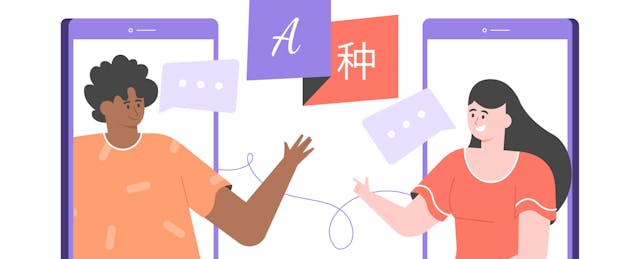Kirill Bigai is more confident in success in the United States this time around. The CEO of Preply says he was less focused and less experienced back in 2012, when he opened operations in the Boston area for an earlier iteration of his company.
Back then, the company specialized in standardized test prep. Adding to his troubles, Bigai lacked proficiency in English. His own lessons around that time with an English tutor inspired him to switch his company to language learning.
“The U.S. is already a big market for us,” says Bigai, 33. “This time, we already have a lot of traction, we’ve found a good product market fit and we’re stronger in marketing.”
His expansion comes during tumultuous times for the U.S. The outbreak of COVID-19 has forced millions of Americans to stay at home. But spikes in his platform’s traffic suggest to Bigai that some have used that time to improve on their language skills.
Assisting the company, which has offices in Kyiv, Ukraine and Barcelona, Spain, is a $10 million Series A round that closed in January, bringing Preply’s total raised in venture funding to more than $15 million.
Hoxton Ventures led this latest round. European investors Point Nine Capital, All Iron Ventures, The Family, EduCapital and Diligent Capital participated with a number of individual angel investors, including Arthur Kosten of Booking.com, Gary Swart of Upwork, David Helgason of Unity and Daniel Hoffer of Couchsurfing.
More Interest in Language Tutoring
Preply’s video-based tutoring platform works by allowing users to search for tutors based on language, price, nationality or availability. Learners pick open times on tutors’ schedules, with tutors setting an hourly rate.
Those rates average to about $15 an hour with Preply taking a commission. Preply keeps the entire payment for a tutor’s first lesson. After that, commissions range from 18 percent for tutors who’ve completed more than 400 hours of lessons to 33 percent for tutors with less than 20 hours of lessons complete.
Tutors on Preply can earn up to $550 a week. Students also receive discounts for pre-purchasing how many hours they want to spend on Preply. And students rate and review tutors.
The company faces no shortage of competition from other language-learning apps, which have also amassed impressive investments recently. Duolingo reached unicorn status in December with a $30 million funding round, and Lirica raised $1 million in September.
Like some of its competitors, Preply has seen a surge in usage during the coronavirus outbreak. The company has recorded a 40 percent increase in traffic since January, Bigai says. In the U.S., its number of learners and tutors have each doubled year over year.
Preply users have taken two million classes to date with 15,000 verified tutors of 160 nationalities teaching 50 languages. Founded in 2013, Preply employs 125 employees full time, and Bigai says revenue has grown tenfold over the last three years.
Having teachers from all over the world helps keep tutoring costs lower than if U.S.-based learners sought a local tutor, Bigai says. And American tutors are highly sought by users elsewhere, who want users to learn slang and dialects. “You start by learning a language, but you really learn about a culture,” says Bigai.
A recent tutor to join the platform is Stefano de Angelis, who is from Italy and is now based in New York. A former criminal justice college professor, de Angelis is only three weeks into using Preply. He hasn’t gotten too many students yet, but he believes more will join the platform as a result of multiple states’ shelter-in-place directives.
Even if he earns only enough to pay a phone or internet bill, de Angelis says he’s giving the platform a try because teaching is a passion of his. “It’s a mutual exchange because I learn something, too,” says de Angelis, 33.
Along with searching for tutors themselves, students can use the platform’s algorithm to match with tutors based on native languages, time zones and learning goals. The company vets the tutors and requires past tutoring experience or a teaching certificate.
Preply also offers a package for corporate learning, focused on lessons to fit business situations and scale for teams of five to teams of 200-plus.
Expansion Beyond U.S.
The U.S. is the most popular origin for learners. But English is the most common language studied by 40 percent of all Preply learners. Another 30 percent pursue Spanish, German and French.
About 21 percent of learners on the platform report using Preply to improve skills to promotions and better job opportunities. Thirteen percent report using it to teach children a new language.
In addition to the U.S., Preply hopes to expand use throughout North America and Europe. Upcoming features will allow tutors to track learners’ progress with new assessments and homework. The company plans to improve its Android and iOS mobile apps, too.
He says he feels fortunate to complete the round when he did, as he anticipates a slowdown in future investments as investors potentially pause dealmaking activity and focus on helping companies already in their portfolio.
Bigai says he’ll use this new round of funding toward the new U.S. office—located in either New York or San Francisco—plus marketing efforts. The office should open before year’s end.


